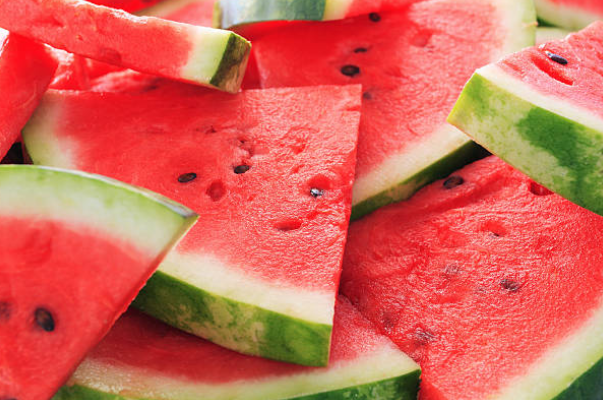The fruit that hydrates as much as water, is rich in potassium and prevents muscle cramps

Water is the main source of hydration, but there are alternatives that also help maintain fluid balance in the body.
Some foods contain a high percentage of water and provide essential nutrients, making them recommended options to supplement daily fluid intake.
The body requires adequate hydration for functions such as regulating body temperature, eliminating toxins, digestion, and lubricating joints . Even mild dehydration can affect physical and mental performance, causing fatigue, difficulty concentrating, and headaches.
The amount of water to be consumed varies depending on factors such as age, physical activity and climate. However, the World Health Organization (WHO) recommends a daily consumption of between two and three liters for adults. In addition to pure water, there are alternatives such as infusions, soups and natural juices, but some fruits offer an additional source of hydration with nutritional benefits.
A fruit with high water and potassium content Among the fruits with the highest percentage of water, watermelon stands out for its hydrating capacity. Its composition is made up of 92 percent water, which makes it a refreshing and effective option for replenishing liquids naturally.
It is estimated that 300 grams of watermelon is approximately equivalent to a 250 ml glass of water, making it useful for those looking to supplement their hydration through food. In addition, its potassium content is significant. This mineral is essential for muscle function, the transmission of nerve impulses and the maintenance of blood pressure . For this reason, its consumption contributes to preventing muscle cramps and helps regulate the balance of fluids in the body.

Its combination of water and fiber aids digestion and helps prevent constipation. Photo: iStock
The specialized website Healthline highlights that watermelon is a source of lycopene, an antioxidant that can reduce the risk of cardiovascular diseases. It also contains fiber and water, which favors digestion and prevents constipation.
Likewise, its contribution of vitamin C is important, since this vitamin participates in the production of collagen, which favors skin health. For those who exercise, watermelon is an option that facilitates muscle recovery by replenishing fluids and electrolytes lost during physical activity.
While it is safe for most people to consume, some people with digestive sensitivities may experience discomfort due to the presence of fructose and fiber. Additionally, those with kidney problems should moderate their potassium intake. To determine the appropriate amount of water and fruit in the diet, it is advisable to consult with a nutrition specialist .
Tips for choosing and preserving watermelon This fruit is most common in the warmer months, as its season runs from December to March. Its freshness and flavour can be best enjoyed during this period, when it is at its optimum ripeness.
To choose a ripe watermelon, there are a few signs that indicate its quality. One of them is the yellow spot at its base, which shows that it has ripened in contact with the ground. It is also advisable to tap it gently: if the sound is hollow, it means that its texture is suitable. The rind should be firm, without bumps or cuts, which guarantees its freshness.
Once cut, it is best to store it in the refrigerator , wrapped in film or in an airtight container. It is recommended to consume it within three to five days to avoid losing its properties.
Other fruits with high water content While watermelon is one of the most hydrating fruits, there are other options with a high percentage of water. According to The Ohio State University, some of them are:
- Cucumber: 96% water
- Tomato: 94% water
- Grapefruit: 92% water
- Melon: 90% water
Including these fruits in your daily diet can be an effective strategy to improve hydration and obtain essential nutrients without relying exclusively on water consumption.
The fruit that cleanses the colon and improves digestion, according to experts | El Tiempo The Nation (Argentina) / GDA
More news in EL TIEMPO *This content was rewritten with the assistance of artificial intelligence, based on information from La Nación, and was reviewed by a journalist and an editor.
eltiempo






